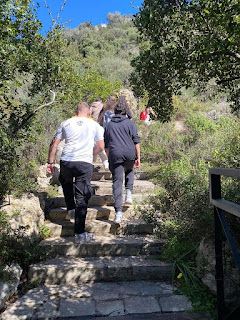3rd Junior High School of Chania
1. SU Sveti Sedmochislenitsi, Targovishte, Bulgaria
2. Colegio Internacional SEK Alboran, Almeria, Spain
3. Istituto di istruzione Superiore P.Carcano, Como, Italy
4. Gimnazija Josipa Slavenskog, Cakovec, Croatia
5. Liceul Tehnologic, Costesti, Romania
6. 3rd Junior Highschool of Chania, Crete, Greece
About the project
Through this project we want students to acquire basic, transversal skills and key competencies for good social inclusion and active participation in democratic life.
The project will enable learners to develop a wide range of transferable skills: research, educational, technical and social such as:
-develop students talent and creavitivity
-Improving students English skills.
independent research;
collating and evaluating evidence; video creation;
sound recording and editing;
collaboration;
leadership;
self-management;
presentation;
-Promote intercultural understanding.
-Develop students working in pair, teams, respect for others and taking responsibilities for actions.
-Gaining experience and basic skills in use of 2.0 tools.
The collaboration with the project partners will be done by email, through online meetings on the etwininng space. Each school will upload materials about the school, their region, their country, about the activities carried out in the school.
We will start working on the project in November 2020 and the deadline will be September 2022
November 2020 - project logo
January 2021 - Visiting museums, galleries and libraries as a school environment
March 2021 Knowledge and involvement of the community
May 2021 - Education for citizenship outside school
October 2021 - Outdoor expeditions
March 2022 - Local historical routes
May 2022 - Learning foreign languages outside the classroom
The expected project results are: improved education provision; new networks and collaborations; satisfying schools` needs in regard to the project themes; international teaching and learning; integration of new practice; improved levels of skills and competences, increased motivation and satisfaction (teachers and learners); active participation in society; improved provision and assessment of basic and transversal skills (social, civic, intercultural, language competences, critical thinking, digital skills).







Comments
Post a Comment